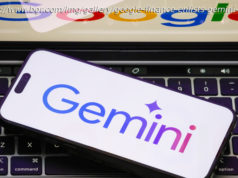After months of avoiding a public debate about whether Russia helped tip the election, Republicans sought to portray the Kremlin-backed effort as a broader misinformation campaign.
WASHINGTON — Senators who called tech giants to Capitol Hill on Wednesday to answer for their roles in Russia’s election interference differed along party lines over the Kremlin’s role in swaying the race, with Republicans offering an implicit defense of the legitimacy of President Trump’s victory.
After months of publicly sidestepping the issue, several Republicans used a high-profile hearing with executives of Facebook, Google and Twitter to dismiss the impact of Russia’s use of the sites to spread misinformation and buy ads to try to tip the election in Mr. Trump’s favor.
“A lot of folks, including many in the media, have tried to reduce this entire conversation down to one premise: Foreign actors conducted a surgically executed covert operation to help elect a United States president,” said Senator Richard Burr, Republican of North Carolina and the chairman of the committee. “I’m here to tell you this story does not simplify that easily.”
The hearing, the second of three in two days for the executives, offered a rare view into the Senate committee’s investigation, which has largely played out over the past nine months in secured briefing rooms. Publicly and in private, Mr. Burr and the top Democrat on the panel, Senator Mark Warner of Virginia, have taken pains to preserve bipartisan comity in their work — and their success has set the committee apart from the other committees investigating Russia’s efforts.
But the difference in their emphasis on Wednesday also underscored the political realities buffeting their work. In advancing an investigation tied to Mr. Trump, a fellow Republican whom he supported in last year’s election, Mr. Burr has been careful to make clear that the committee’s work is larger than an individual candidate, and he has repeatedly tried to tamp down expectations about just what it might find.
Mr. Warner has no such reticence.
“We have a president who remains unwilling to acknowledge the threat that Russia poses to our democracy,” Mr. Warner said. He said the use of automated messages, known as bots, and other social media tools were manipulated by Kremlin-linked actors to influence the election.
“The fact is that this Russian weapon has already proven its success and cost effectiveness,” Mr. Warner said.
Democrats and Republicans alike harshly criticized the companies for their slow response to the investigations. The greatest scrutiny was aimed at Facebook, whose general counsel, Colin Stretch, disclosed that 150 million users of both Facebook and its subsidiary Instagram were exposed to content spread by a Russian-linked company called the Internet Research Agency.
But Senator Marco Rubio, Republican of Florida, emphasized that the real intent of Russian propaganda was to broadly spread misinformation and create chaos.
“These operations, they’re not limited to 2016 and not limited to the presidential race, and they continue to this day. They are much more widespread than one election,” Mr. Rubio said.
The comments contrasted starkly with those of Democrats and made plain the political tensions that are shaping investigations into Russian meddling in the 2016 election.
Senator Martin Heinrich, Democrat of New Mexico, also took aim at Mr. Trump’s dismissal of the role of Russia-created social media in his win. Mr. Heinrich challenged Mr. Stretch to acknowledge such content and the role that fake accounts linked to Russia and other misinformation had in the election.
“Last month, President Trump called Russian purchased Facebook ads a ‘hoax.’ I’ve looked at those Russian-sponsored Facebook ads. I certainly hope you’ve had a chance to review them. Are they, in fact, a hoax?” Mr. Heinrich said.
Mr. Stretch said no. “The existence of those ads were on Facebook,” he said, “and it was not a hoax.”






